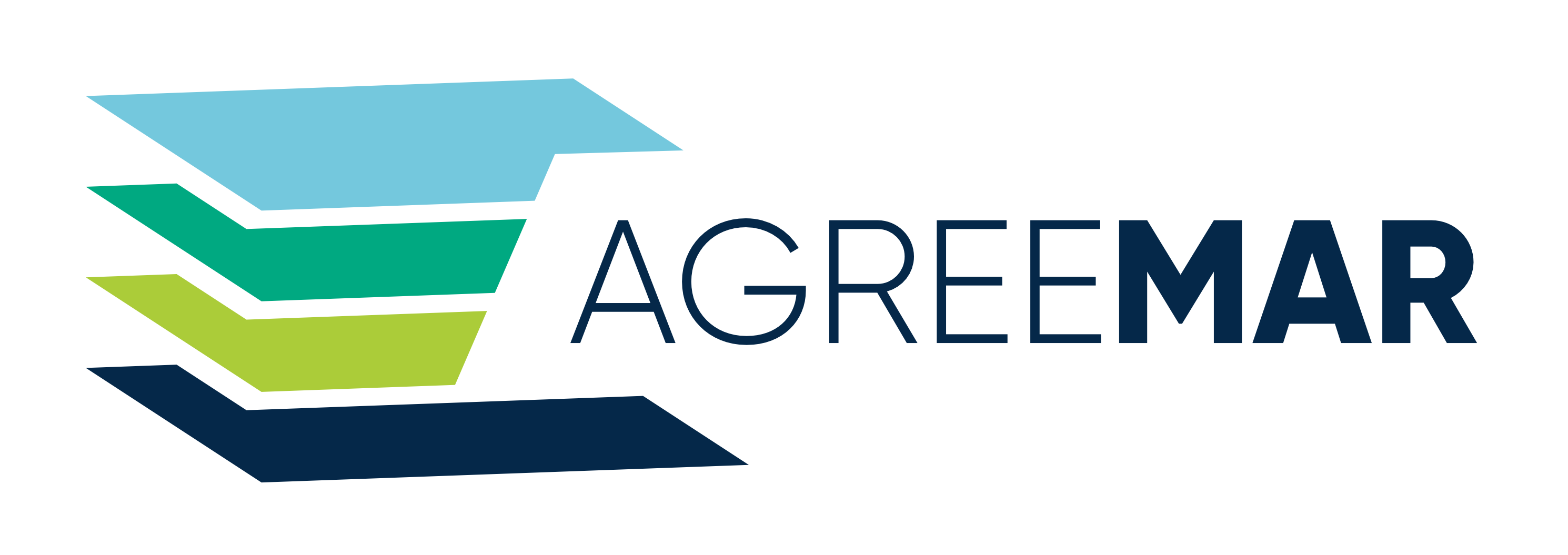Stakeholder engagement is an essential tool for achieving relevant outcomes in water management. It is preceded by a thorough identification of actors, enablers, knowledge brokers, affected parties, etc. and a clear understanding of their role, competences and needs in relation to the topic under discussion.
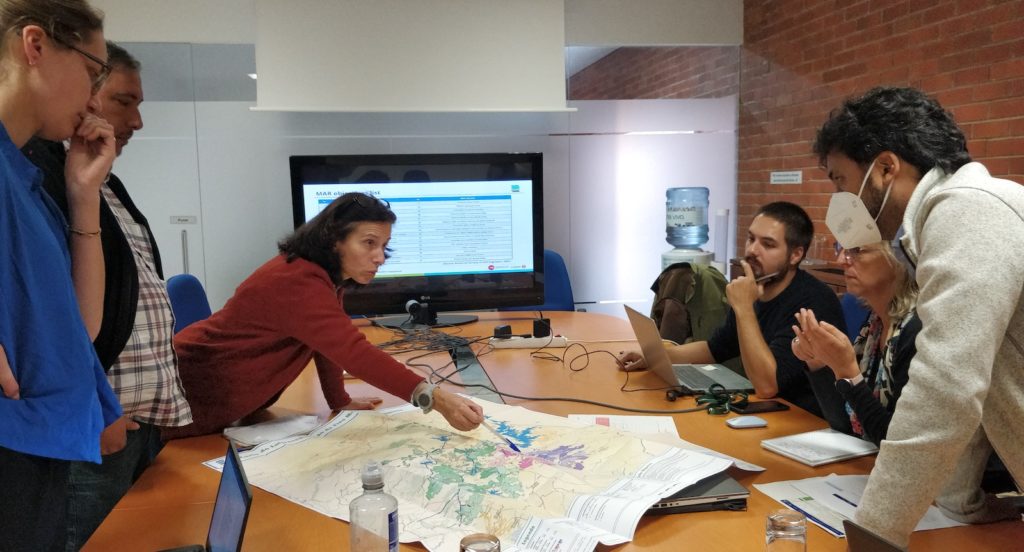
Preliminary stakeholders analysis
The stakeholder analysis explores the stakeholder landscape including the influence and interest of main stakeholders in MAR at four project demo sites in Europe and Northern Africa on a general scale (GS), regional scale (RS) and local scale (LS). By means of desk research, expert judgement and validation in the field, specific stakeholder maps and initial assumptions of the needs, competences and spheres of influence related to MAR have been developed and identified for each project demo site (see deliverable D1.1a for preliminary results of the stakeholders analysis). Throughout the course of the project, these preliminary findings will be further validated and refined through interviews and workshops with project partners and identified key stakeholders from the demo sites.
Chiba watershed, Tunisia
In Tunisia, project activities will focus on the Chiba watershed belonging to the Cap Bon peninsula, which is one of the most productive agricultural areas in Tunisia. The lessons learned from an abandoned MAR site located in this watershed will be used to improve the planning of a new MAR site in this region safeguarding the scarce water resources of the Chiba dam.
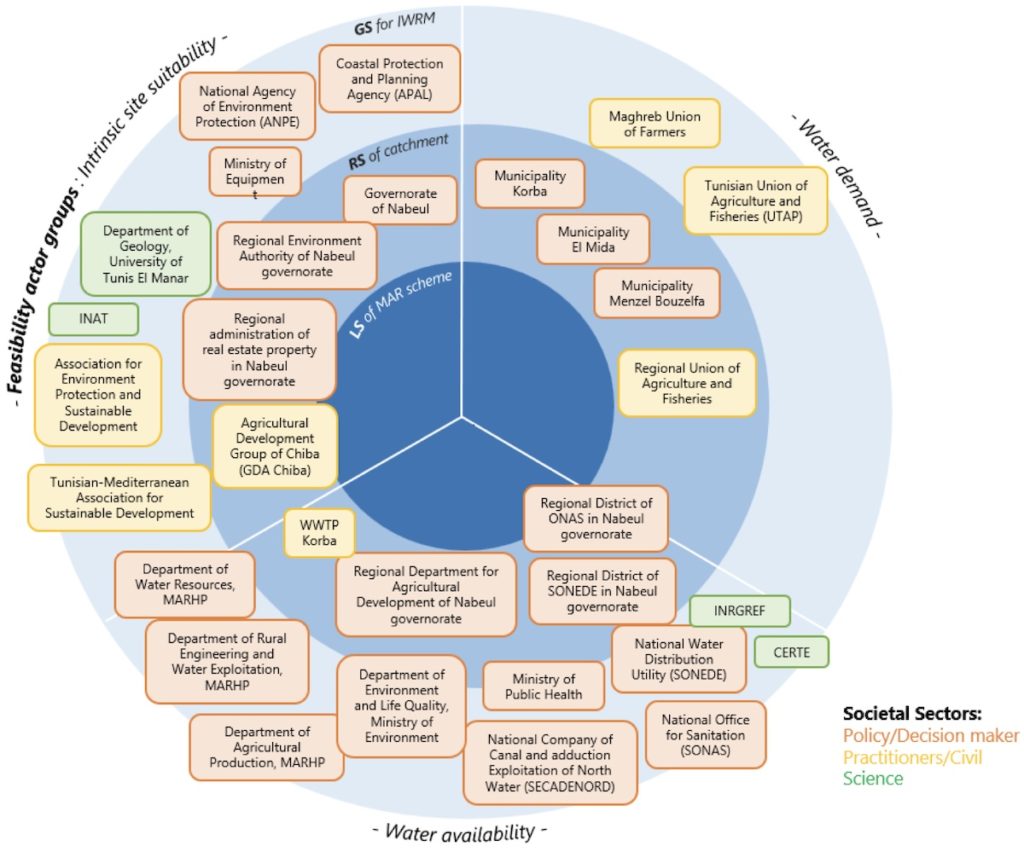
Recent stakeholders engagements in Tunisia
- Training course on numerical groundwater modelling at INAT, Tunisia - On 7 April 2025, a training course on numerical groundwater flow modelling was conducted in Tunis as part of the AGREEMAR project. The course was jointly organised by the AGREEMAR partners INAT, TU Dresden and ERATOSTHENES Centre of Excellent. Training… ...
- Dr. Khaoula Khemiri as invited speaker to the series of IAHS-ARC online seminars - On 27 February 2025, Dr. Khaoula Khemiri from INAT, Tunisia, was invited as speaker to the series of online seminars initiated by the International Association of Hydrological Sciences, Africa Regional Committee, North Africa Chapter (IAHS-ARC). The talk of Khaoula Khemiri… ...
- Civil assembly of AGREEMAR project in Tunisia for development of adapted MAR agreements - As part of the AGREEMAR Project, a stakeholder workshop was co-organised by adelphi and INAT teams and took place on January 29, 2025, at the Golden Tulip El Mechtel Hotel in Tunis, Tunisia. The purpose of this civil assembly was… ...
- Training course on AQUATOOL DSS for water resources management in Tunisia - Within the framework of the AGREEMAR project, on Thursday, 30 January 2025, the Technical University of Valencia (UPV) and the National Agronomic Institute of Tunisia (INAT) organised a training course on the AQUATOOL decision support system (DSS). This training aimed… ...
- AGREEMAR team participated in the General Assembly of the European Geosciences Union (EGU2024) - Thursday, 18 April 2024, the AGREEMAR team presented its work on understanding the natural groundwater recharge trends in Chiba watershed at the General Assembly of the European Geosciences Union (EGU2024) in Vienna, Austria. Dr. Khaoula Khemiri presented the work on… ...
- Visit to the Regional Agricultural Authorities of Nabeul governorate (CRDA of Nabeul) and field visit in Korba MAR facility - On 28 February 2024, Dr. Panagiotou (ERATOSTHENES CoE) and Prof. Chekirbane (INAT) visited the headquarters of the Agricultural authorities of Nabeul governorate (CRDA) to discuss the quality status of the aquifer system in Korba and the risks associated with the… ...
- Meeting between INAT and the Tunisian Association of Nature and Environment Protection (ATPNE) in Korba, Tunisia - On 13 November 2023, INAT team met the representatives of the Tunisian Association of Nature and Environment Protection (ATPNE). The NGO has the objective of contributing to nature and environment protection in CapBon peninsula in general and specifically in the… ...
- Validation workshop of the MAR feasibility maps in Tunisia - On 13 July, the MAR feasibility maps developed by the AGREEMAR team at INAT were validated in a participative workshop attended by representatives of relevant stakeholders in Tunisia. Participants of the AGREEMAR validation workshop organised by INAT on 13 July… ...
- Meeting of the Steering Committee of AGREEMAR in Tunisia - The first meeting of the Steering Committee (STC) of AGREEMAR project in Tunisia took place in the National Agronomical Institute of Tunisia on 14 March 2023 from 09:00 to 12:30. First meeting of the Steering Committee of AGREEMAR in Tunisia.… ...
- Assessing the stakeholders’ needs and demo site requirements in Tunisia - After having successfully conducted needs assessment missions to Spain and Portugal in November, Tunisia was next on the list from 12-16 December 2022. The project team, consisting of INAT, TU Dresden and adelphi met with general (national), regional as well… ...
Republic of Cyprus
The project activities in Cyprus will consider the entire island of Cyprus with a focus on two watersheds, which are considered by the local water authority to be the most suitable for MAR: Akrotiri basin and Yermasoyeia basin.
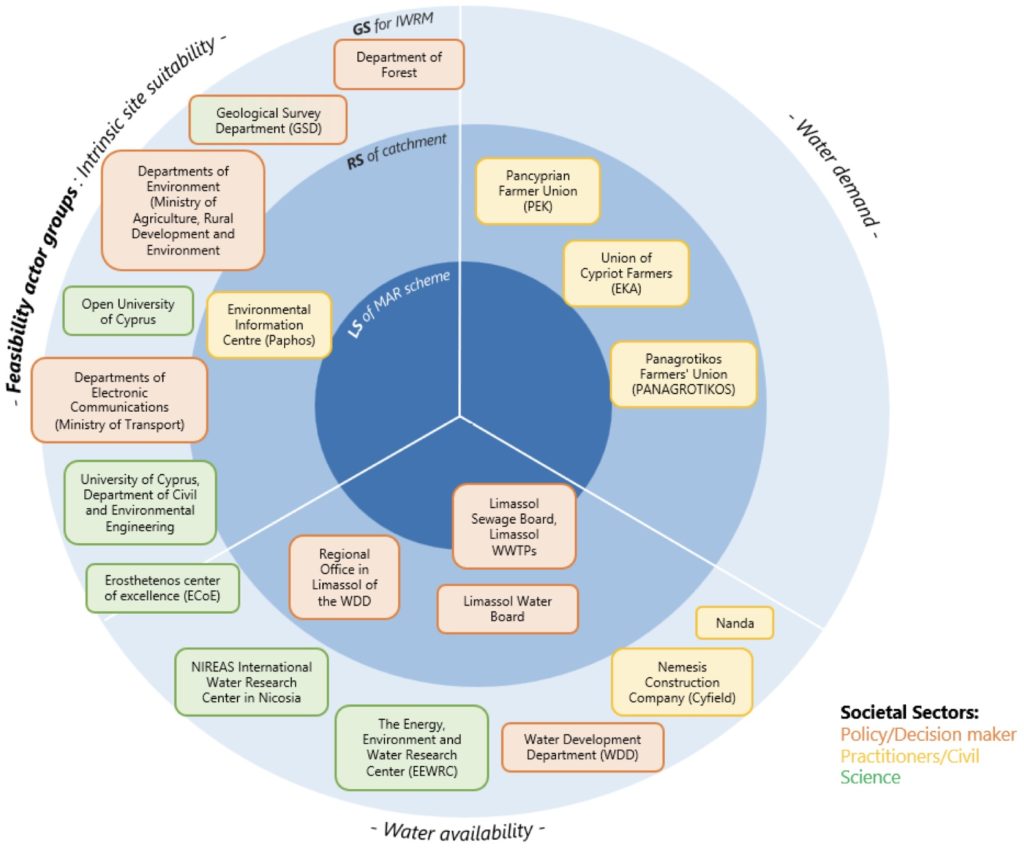
Recent stakeholders engagements in Cyprus
- Training course on water resources management in Cyprus using AQUATOOL - On Thursday, April 24th, 2025, a training workshop on the AQUATOOL Decision Support System (DSS) was held in Cyprus. It was jointly organized by the Technical University of Valencia (UPV) and the Eratosthenes Centre of Excellence. Training course on water… ...
- Akrotiri groundwater modelling – stakeholder interaction and training workshop in Cyprus - On 22 and 23 May 2024, Technische Universität Dresden together with ERATOSTHENES Centre of Excellence organised a stakeholder interaction and training workshop at the Water Development Department in Nikosia, Cyprus. The event was attended by representatives of Water Development Department and… ...
- Presentation of MAR feasibility maps in Cyprus to representatives of Water Development Department - A stakeholder meeting was held in the facilities of the Water Development Department on the 29 January 2024. During that meeting, Dr. Panagiotou, PI of the local partner (ERATOSTHENES Centre of Excellence) of AGREEMAR project, presented the latest outcomes regarding… ...
- Validation workshop of the MAR feasibility maps in Cyprus - Online workshop for the validation of feasibility maps in Cyprus The outcomes of the multi-criteria decision analysis, along with the assumptions/limitations applied to derive the feasibility maps, were discussed with the key stakeholders, particularly members of the Geological Survey and… ...
- Assessing the stakeholders‘ needs and demo site requirements in Cyprus - In a recent development, the AGREEMAR project reached a significant milestone with its latest needs assessment mission to the project demo site in Cyprus, spanning from 27 to 31 March 2023. During this mission, the project partners adelphi, ERATOSTHENES CoE… ...
- AGREEMAR Cypriot partners explored opportunities for collaboration with representatives of Open University of Cyprus - On 12 October the AGREEMAR Cypriot partner Dr. Konstantinos Panagiotou met with representatives of Open University of Cyprus and discussed opportunities for collaboration within the framework of AGREEMAR project. The meeting with Assistant Professor Marinos Stylianou took place at the… ...
- The Cypriot partner signed the funding contract - The AGREEMAR partner from Cyprus, the ERATOSTHENES Centre of Excellence (ECoE), signed today the funding contract with the Research and Innovation Foundation (RIF), the National Funding Agency of Cyprus in the PRIMA initiative. The contract was signed by Prof Diofantos… ...
Alentejo and Algarve regions, Portugal
In Portugal, project activities will focus on the Alentejo and Algarve administrative regions consisting of three hydrographic sub-regions: Sado-Mira, Guadiana, and Ribeiras do Algarve. Two specific MAR sites (one existing and one potential) could be selected for further investigations and validation of feasibility maps to be developed within the AGREEMAR project.
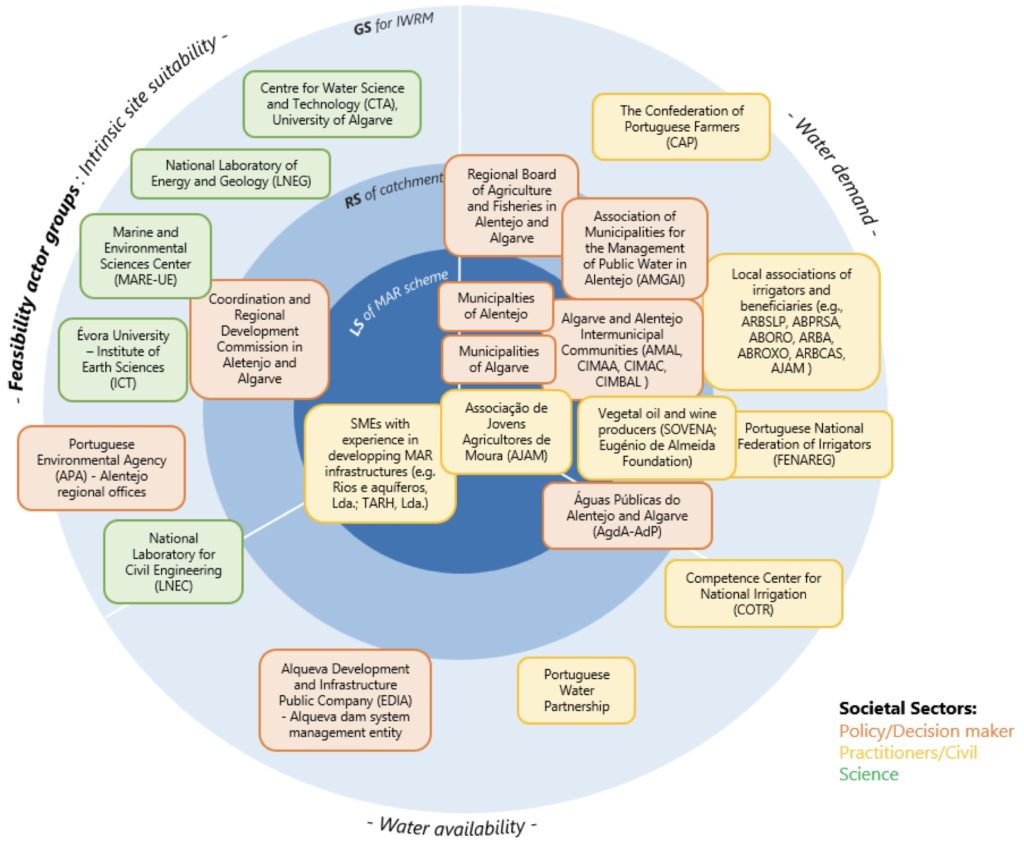
Recent stakeholders engagements in Portugal
- Teresa Leitão from LNEC highlights the relevance of MAR strategies in key agriculture-related events - Teresa E. Leitão, a senior researcher from LNEC and AGREEMAR partner, delivered two invited talks this spring, focusing on the role of MAR in addressing climate change and improving water sustainability, looking particularly into agriculture. Teresa E. Leitão delivered two… ...
- Successful PhD defense of Tiago N. Martins from LNEC as part of AGREEMAR project - On 21 February 2025, the number of project members having a PhD title increased by one. Tiago N. Martins from LNEC, Portugal, successfully defended his thesis entitled "Decision making to support managed aquifer recharge – a study for southern Portugal".… ...
- AGREEMAR presented at the 14th Portuguese Groundwater Seminar - Marcel Horovitz from LNEC presented the AGREEMAR project at the 14th Portuguese Groundwater Seminar, organised on 5-6 December 2024 by the Portuguese Water Resources Association in a technical presentations session, chaired by Tiago Martins (LNEC). This session addressed the topics… ...
- AGREEMAR at the 8th European Congress of the International Association for Hydro-Environment Engineering and Research - Between 3-7 June 2024, the AGREEMAR team attended the 8th European Congress "Water - Across Boundaries" of the International Association for Hydro-Environment Engineering and Research (IAHR2024) in Lisbon, Portugal. The conference was organised by the Portuguese National Laboratory for Civil… ...
- Integrated Water Resources Management – Aquifer Recharge: Stakeholder interaction workshop in Portugal - On April 18th, 2024, the AGREEMAR partner LNEC organised a stakeholder interaction workshop with the participation of 20 people representing national, regional, and local institutions. In this workshop, the tools developed to date in the AGREEMAR project have been presented… ...
- Presentation of the final MAR feasibility maps, the constellation analysis and visit to the physical models with the Water Authority of Alentejo (APA/ARH-Alentejo) - On 18 October 2023, the final MAR feasibility maps developed by the AGREEMAR team at LNEC (improved after discussion with APA/ARH-Alentejo on 27 July 2023 meeting) were presented to the main regional stakeholder at the demo region in Portugal, the Water… ...
- Validation of the MAR feasibility maps with the Water Authority of Alentejo at the Portuguese demo region - On 27 July 2023, the MAR feasibility maps developed by the AGREEMAR team at LNEC were discussed and validated in a meeting with the main regional stakeholder at the demo region in Portugal, the Water Authority of Alentejo (APA Alentejo).… ...
- Online meeting with Águas do Alentejo (AgdA) to explore the development of an AQUATOOL model in Portugal - An online meeting between LNEC, UPV and Águas do Alentejo (AgdA) took place on 30 June 2023 with the aim to discuss the possibility of supporting the decision-making on water management in Alentejo with the aid of an AQUATOOL model.… ...
- AGREEMAR presented at the 16th Portuguese Water Congress in Lisbon, Portugal - On 22 March (the World Water Day), the AGREEMAR project was presented by Dr. Teresa Leitão from LNEC at the 16th Portuguese Water Congress in Lisbon, Portugal with a talk entitled “Promoting Managed Aquifer Recharge Implementation in the Mediterranean Area. AGREEMAR… ...
- Stakeholder meetings to assess their needs and weighting of MAR feasibility criteria at project demo site in Portugal - In the period 18-21 November 2022, AGREEMAR project partners LNEC and adelphi held bilateral meetings with key stakeholders of the project demo sites in Portugal including the regional office of the Portuguese Environmental Agency in Alentejo (APA), regional water utilities… ...
Jucar Water District, Spain
In Spain, project activities will focus on the Júcar Water District. Two specific MAR sites using two different MAR techniques (infiltration pond and surface dam) could be selected for further investigations and validation of feasibility maps to be developed within the AGREEMAR project: the Belcaire pond and the Algar reservoir.
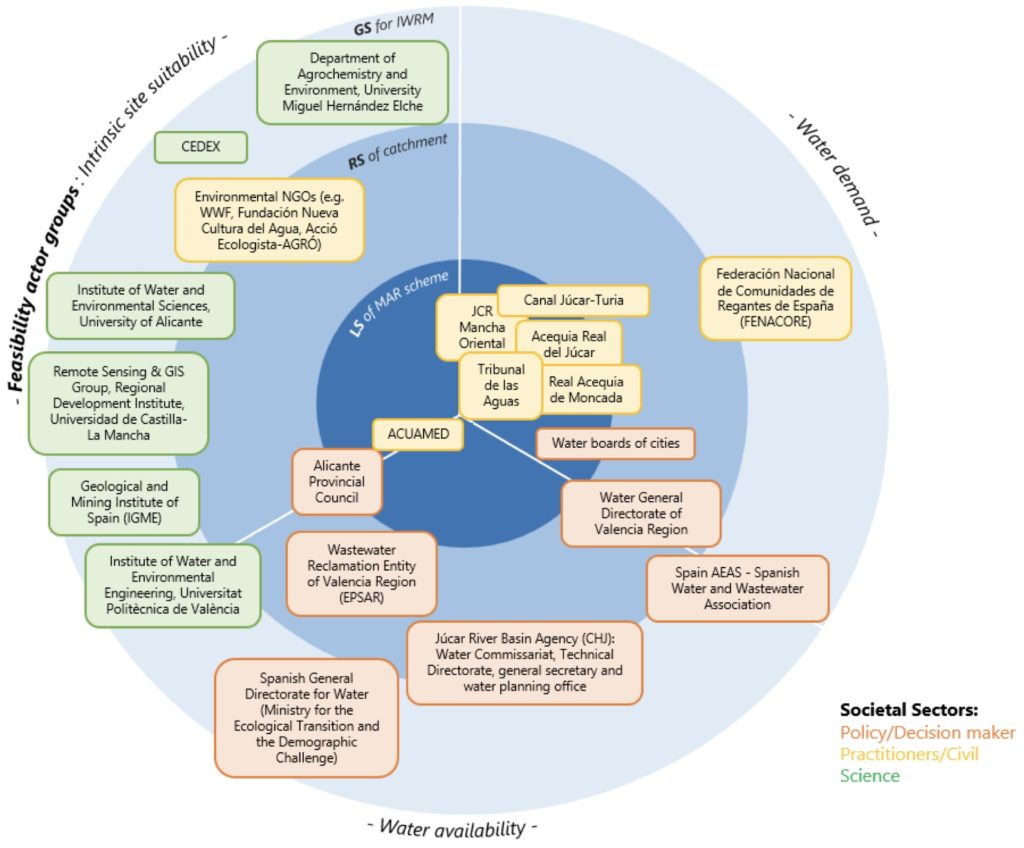
Recent stakeholders engagements in Spain
- Validation of feasibility maps for the AGREEMAR demo region in Spain by the Júcar Basin Authority - On Friday, 17 November 2023, the UPV team of the AGREEMAR project met with the Water Commissary and the Hydrological Planning Office of the Júcar Basin Authority to validate the MAR feasibility maps and their weighting coefficients. UPV team met… ...
- National Civil Engineering Award 2023 for Prof. Joaquín Andreu, PI of UPV team in the AGREEMAR project - On 25 October 2023, Prof. Joaquín Andreu, PI of the UPV team in the AGREEMAR project, was honored with the National Civil Engineering Award 2023, delivered by the Ministry of Transport, Mobility, and Urban Agenda. The Minister of Transport, Mobility… ...
- AGREEMAR at the International Training Course on “Conjunctive Management of Surface and Groundwater in the Mediterranean” - We are thrilled to announce that the AGREEMAR project was recently showcased by Prof. Joaquín Andreu during an international Training Course on "Conjunctive Management of Surface and Groundwater in the Mediterranean". This event, organized by UNESCO, took place on 17-19… ...
- Needs assessment workshop and meetings with stakeholders from the Júcar Water District in Spain - On 3 November 2022, the UPV team of the AGREEMAR project organised a workshop with the main stakeholders of the Spanish demo region to discuss the possibilities and limitations of managed aquifer recharge (and conjunctive use of surface water, groundwater… ...
- National meeting on managed recharge of aquifers in Spain - On May 24th and 25th, the Spanish partner of the AGREEMAR project (UPV) attended a national meeting on managed aquifer recharge, where numerous members of river basin agencies, private companies and different scientific institutions exchanged opinions and experiences about the technical,… ...
Preliminary conclusions
The demo sites are similar in their institutional set-up and similar stakeholder groups appeared to be significant for engagement in a MAR project. Feasibility actor groups are evenly distributed, with actors for water demand being found more at the local and regional level and for intrinsic site suitability at the general and regional level. Furthermore, as could be expected, water demand interests are more likely to be represented by civil society and intrinsic site suitability and water availability are more likely to be represented at the policy and science level. Whether there is a power and interest imbalance here that has an influence on sustainable and equitable planning and management of MAR and whether there is a need for balancing via an appropriate governance framework will be further explored in the course of the detailed stakeholder analysis through direct stakeholder dialogues.
